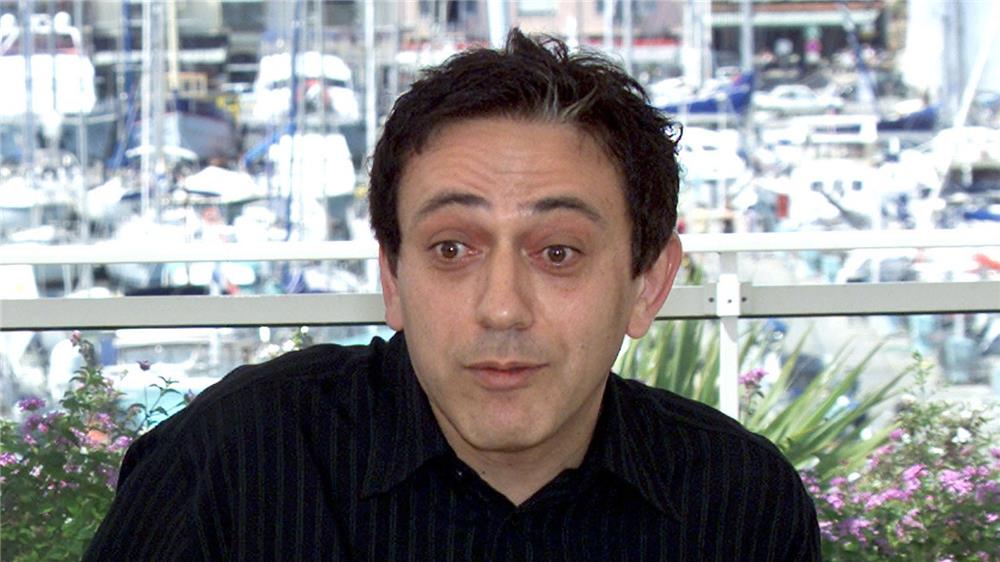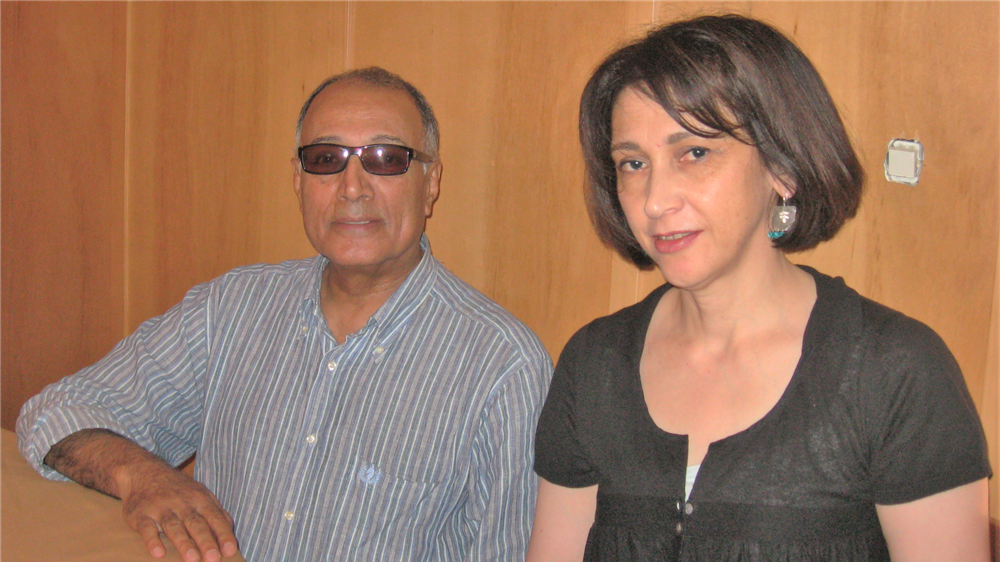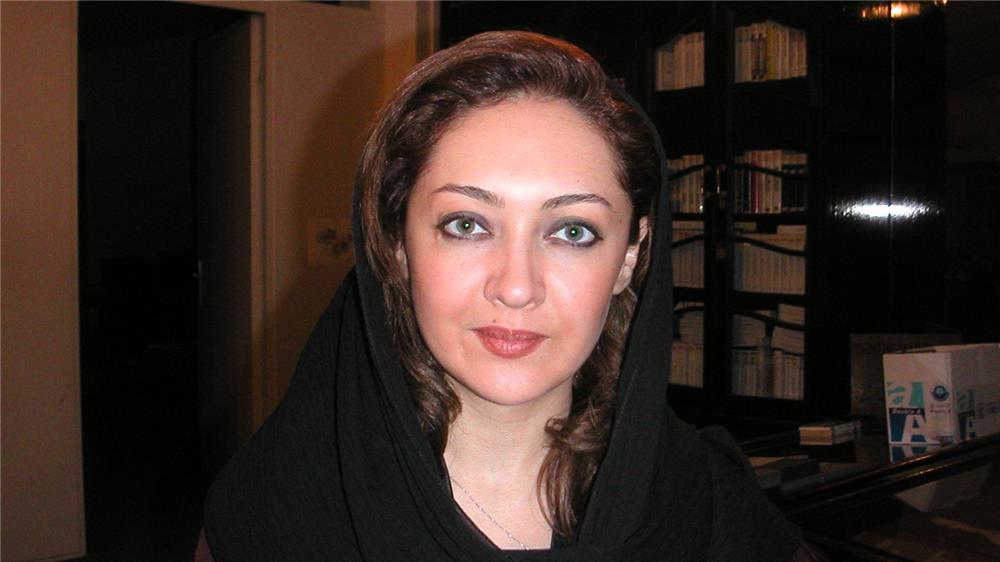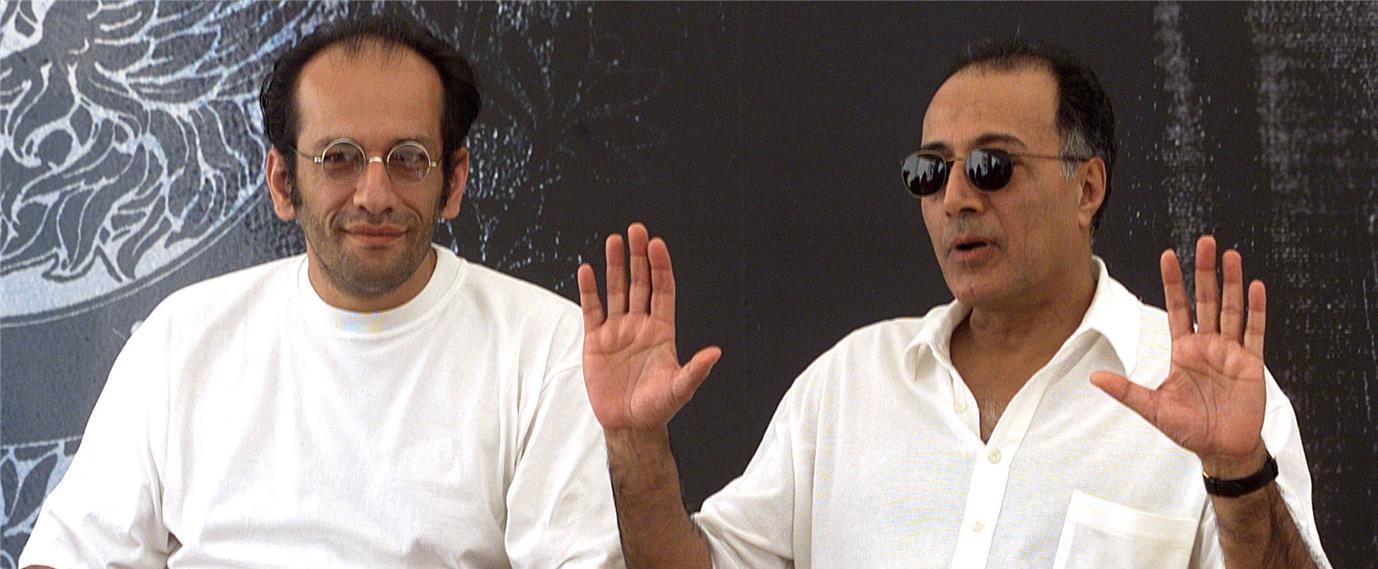في كل مرة أذهب فيها لإجراء حوار مع شخصية ما، تنتابني مشاعر عدة وتدور في رأسي تساؤلات شتى، لكن أكثر ما يشغلني هو قدرتي على جعلها تفضي لي بما يحقق رضى الطرفين، ومدى تمكني فيما بعد من التعبير جيدا -ولن أقول تماما- عما أرادت الشخصية قوله أو توصيله.
قبل..
بشكل عام، يتطلب إجراء حوار صحفي مع شخصية ما توفر سبب مباشر كإصدار كتاب أو عرض فيلم أو مشاركة في حدث ثقافي.. قد يكون من الصعب أحيانا الحصول على المقابلات الصحفية مع شخصية شهيرة خارج هذا الإطار. وحين لا يحظى الصحفي بلقاء من يرغب في تقديمه للقراء أو للمشاهدين في المناسبات العامة، يتوجب آنذاك الاتصال به شخصيا. ثمة شخصيات تحذر الصحفي الذي يأتي هكذا واثقا ويطلب اللقاء خارج إطار حدث ما، وتزداد الصعوبة حين يكون هذا مستكتبا ولا يتبع صحيفة أو وسيلة إعلامية محددة، أما حين تكون الوسيلة الإعلامية أجنبية (كوسائل الإعلام العربية خارج الوطن العربي) لا تعرف الشخصية شيئا عنها وعن مكانتها، فإن محاولات الإقناع بإجراء الحوار تغدو أكثر مشقة.
في مستهل العام 2000، مع بداية عملي الصحفي في فرنسا كمراسلة ثقافية لبعض الصحف والمجلات العربية، لم يكن الإنترنت بهذا الانتشار الذي عليه اليوم. كان إجراء أي حوار صحفي يستلزم الاتصال مع الملحق الصحفي للشخصي -إن وُجد- وهو المكلّف بترتيب حيثيات اللقاء وتزويد الصحفي بالملف المعرّف بالفنان أو الأديب، ولم يكن العثور عليه بالأمر اليسير دائما، فكانت الفرحة الأولى تأتي من الحصول على هذه المعلومة، ثم الاتصال والاتفاق والانتظار.. انتظار وصول الملف عبر البريد.
صحيح أن المعلومات عن الشخصية تتوفر اليوم على الإنترنت وهي أكثر غزارة بما لا يقارن، لكن التعامل مع الملف كان أكثر سهولة لتركيزه الشديد واحتوائه على المهم من مسيرة الشخصية.. فوفرة المعلومات عبر الشبكة اليوم قد تحيد بالصحفي عن هدفه وتربكه إن لم يستطع تحديد خط سير المقابلة منذ البداية، وإجراء محاولة أولية لسبر شخصية الضيف والتركيز على نقاط مهمة في مسيرته تستحق إلقاء ضوء عليها. في جميع الأحوال فإن المعلومات لا تعني الاكتفاء بما يقدمه الملف أو الإنترنت، فقراءة عدة كتب إن كانت الشخصية أدبية، أو مشاهدة عدة أفلام إن كانت فنية، ضرورة لا غنى عنها للحصول على مقابلة غنية وجعل الضيف يتفاعل مع الأسئلة.
صعوبة تحضير المقابلة ترتبط كذلك بصاحبها، لا سيما إن كان مفكرا أو مؤلفا موسيقيا، وباللغة التي تتم بها. فوجود مترجم يغير من طبيعتها ومسارها والتحكم بها.. من الأفضل أن يلمّ الصحفي بعدة لغات وأن يكون مطلعا على معظم أعمال الضيف المحاوَر، أو أهمها إن لم يتسع له الوقت. أما من يقرر أهميتها فهي شهرتها، وهذا أمر لا مفر منه. مع هذا، فلا بد ألا يكتفي الصحفي بذلك، فيضيف أيضا لمسته الخاصة وميله الشخصي لعمل من الأعمال ووجهة نظره. ليس أكثر مللا للجمهور ولصاحب العلاقة من الأسئلة المكررة والسطحية التي لا تعكس شخصية المُحَاوَر ولا ثقافته.
ثمة من يرفض إجراء مقابلة مع صحفيين لا يعرفهم، حتى لو تبع هؤلاء مؤسسة إعلامية شهيرة. حين التقيت للمرة الأولى بالمخرج الفلسطيني إيليا سليمان، لم يكن حينها مشهورا، كان ذلك في مهرجان فرنسي يعرض فيلمه الأول "سجل اختفاء". أعجبتُ كثيرا بالفيلم وطلبت مقابلته فتهرب، ثم سنحت لنا عدة فرص للحديث حول الأوضاع العربية وحول فيلمه، وفي اليوم الأخير قبل أن يغادر قال لي: كنت طلبت مني مقابلة؟ الآن يمكننا أن نتحدث.

لكن أديبة سورية رفضت اللقاء حين حادثتها هاتفيا.. كنت في بداياتي وكنت قرأت لها عدة قصص واشتريت أخرى لأعرف المزيد عنها، لكنها صدتني وقالت لي ما معناه: ما أكثر الصحفيين اليوم، "أكثر من الهم على القلب". وأعتقد أن الكاتب الذي لا يشعر بالشخص الذي يحادثه ولا يستطيع تخمين مدى صدقه وثقافته، هو كاتب ينقصه الكثير.
أثناء..
كنت أنسى أحيانا أثناء اللقاء أنني صحفية، وقتي محدود ومقالتي محددة، لكن فن الإصغاء من أهم ما يجب أن يتمتع به المحاوِر، بمعنى الاهتمام بإخلاص وصبر لما يقوله الآخر، ومحاولة استنتاج أسئلة من الإجابات وعدم الاكتفاء بالقدوم مع لائحة جامدة من الأسئلة، فثمة مكان للارتجال والإضافة إن لمس الصحفي جديدا أو أهمية ومتعة فيما يسمع.
نسيان" الزمن" خلال الحوار رفاهية لا يحظى بها الصحفي دائما، فوقته محسوب عليه. أكثر مقابلة شعرت فيها بكل دقيقة تمرّ كانت مع المخرج الإيراني عباس كيارستمي، إذ حدد منذ البداية -وبكل لباقة ولطف- مدتها.. هي إحدى المقابلات النادرة لكيارستمي التي أجريت للصحافة العربية، وكانت أسئلتي كثيرة وإجاباته مسترسلة.. كان هذا من دواعي سروري بالطبع، بيد أني قلقت من عدم تمكني من طرح كافة المواضيع التي تهمني في حوار مع شخصية استثنائية كتلك. لكن ليس الوقت فحسب هو ما يحدّ من مدة المقابلة، بل عدد الكلمات كذلك. وبما أنني أنفر من مقاطعة الضيف حتى لو استرسل في سرد طويل، أكون على ثقة تامة بأني لن أورده عند كتابة الحوار، إلا أنني أهتم بكل ما يسرده وأنظر إليه حينها كمعلم أستفيد من معرفته.

بشكل عام أختار الشخصية بعناية ولا أجري حوارا معها لمجرد تواجدها أمامي بالصدفة في المهرجانات السينمائية التي أحضرها مثلا. أذكر هنا مقابلة مع الموسيقي السوري قدري دلال سرد فيها ذكريات رائعة لم أستطع للأسف -محكومة بعدد الكلمات- نشر سوى نصفها.
في المقابل ثمة مشكلة مغايرة وهي: الضيف القليل الكلام.. فليس كل من برع في الفن مثلا يبرع في الكلام. تتأتى الصعوبة في هذا النوع من الحوارات من جعل الجواب أطول من السؤال! نتحايل على هذا المأزق بطرح أسئلة إضافية ومحاولة التوصل إلى ما يثير شهية الشخصية للإفضاء، كالتركيز على عمل لها أو التعمق أكثر في جواب ما أو طرح أسئلة عامة. حصل هذا على سبيل المثال مع الممثلة الإيرانية والمخرجة نيكي كريمي حين التقيتها في طهران وكان الحوار بالإنجليزية، وقد يكون هذا أحد الأسباب التي جعلت إجاباتها مختصرة رغم توفر الوقت.

الممثلة والمخرجة الإيرانية نيكي كريمي. تصوير: ندى الأزهري.
كانت بعض المقابلات التي أجريتها خارج اختصاصي أحيانا، فمعرفة الصحفي ليست كمعرفة الباحث. وكنت أدرك تماما مدى محدودية ثقافتي في الفلسفة مثلا وفي علم الموسيقى، رغم تحضيري الطويل لمقابلات من هذا النوع. لكن حوارين مع المفكر السوري طيب تيزيني والمؤلف الموسيقي اللبناني نداء مراد كانا من أمتع وأصعب مقابلاتي على الإطلاق وربما أطولها.. كنت أستمع بتركيز شديد لما في أقوالهما من عمق وجدة ومنفعة. كانت نوافذ جديدة تنفتح أمامي وتُدخل نورا إلى روحي. وبخلاف نداء مراد، كان تيزيني مسترسلا منفتحا منذ بداية الحوار، بينما كان مراد حذرا -حتى لا أقول متشككا- في البداية ثم انطلق بعدها في حديث عن الموسيقى، وإن كان معقدا، لكنه شرع أمامي آفاقا جديدة. يقودني هذا للحديث عن فنانين وكتّاب ينظرون بعين الريبة إلى الصحفي، ويشتكون من أن بعضهم يُقوّلهم ما لم يقولوه أو ينشر عبارات لهم مجتزأة وخارجة عن سياقها تماما. ولهذا يصادف أحيانا أن تطلب شخصيات قراءة الحوار قبل نشره.
لم تكن عملية إحراج الضيف من دواعي سروري، وحين كان يشدد على أن بعض ما يقوله لي ليس للنشر، أحترم تماما رغبته رغم معرفتي بأنه في الكثير من الأحيان لن يطّلع على ما كتبته، وأن ما أدلى به قد يجذب القراء ويثير ضجيجا.. لكنني لم أكن يوما من هواة إثارة الضجيج، ولم تكن الإثارة من دوافعي في أي مرة كتبت فيها ولا أعبأ بها، وحين لا يقرأ لي إلا عدد محدود؛ أكون سعيدة بهؤلاء مهما قلّ عددهم.
لكن قد يتسبب الصحفي أحيانا في إحراج ضيفه دون قصد. لقد أجريت حوارات كثيرة مباشرة باللغات الثلاث العربية والإنجليزية والفرنسية، ولكن بما أنني شديدة الاهتمام بالسينما الإيرانية فقد احتجت إلى الترجمة من الفارسية حين التقيت عددا من كبارها، وحين حصل مرة ووقعت فنانة في مأزق بسبب تصريحاتها لي، شعرت بالارتياح حين علقت المشاكل على الترجمة.
يتيح إجراء المقابلة وجها لوجه مواجهة الشخصية ورصد انفعالاتها وإجاباتها العفوية التي تبين جزءا من صفاتها قد لا يظهر في الحالات العادية عند التفكير بالإجابة. ولا أحبِّذ الأسئلة والردود المكتوبة، ومن ضمن عشرات المقابلات الصحفية التي أجريتها لم أجر سوى واحدة عبر الهاتف وأخرى عبر النت.
بعد..
تأتي في النهاية عملية الكتابة، والقرار الصعب نشر المقابلة كنص أم كسؤال وجواب؟
في البداية كان هذا يعتمد على أهمية ما تقوله الشخصية وغزارته وعلى الشخصية نفسها، فمن المتعارف عليه في العمل الصحفي تفضيل المقابلة المقالة، لكن في كثير من الأحيان أترك للقلم أن يختار، وأحيانا كنت أقرر كتابة اللقاء كحوار لأهمية ما ورد فيه ثم ما ألبث أن أنتقل تلقائيا إلى العكس. وأصعب ما يواجه الصحفي في هذه المرحلة هو" القطع"، كالمخرج الذي يعزّ عليه اقتطاع مشاهد من فيلمه، ولكننا محكومون بعدد الكلمات، ودائما بعدد الكلمات. ولو أن بعض مسؤولي التحرير لا يعبؤون تماما بهذا.
أهم ما في العمل الصحفي الإصرار والمثابرة والجهد والإخلاص، فتلك تشرّع الأبواب لصاحبها، إن لم يكن على المحيط، فعلى الجدول أو النهر وهما أجمل لديّ.







































